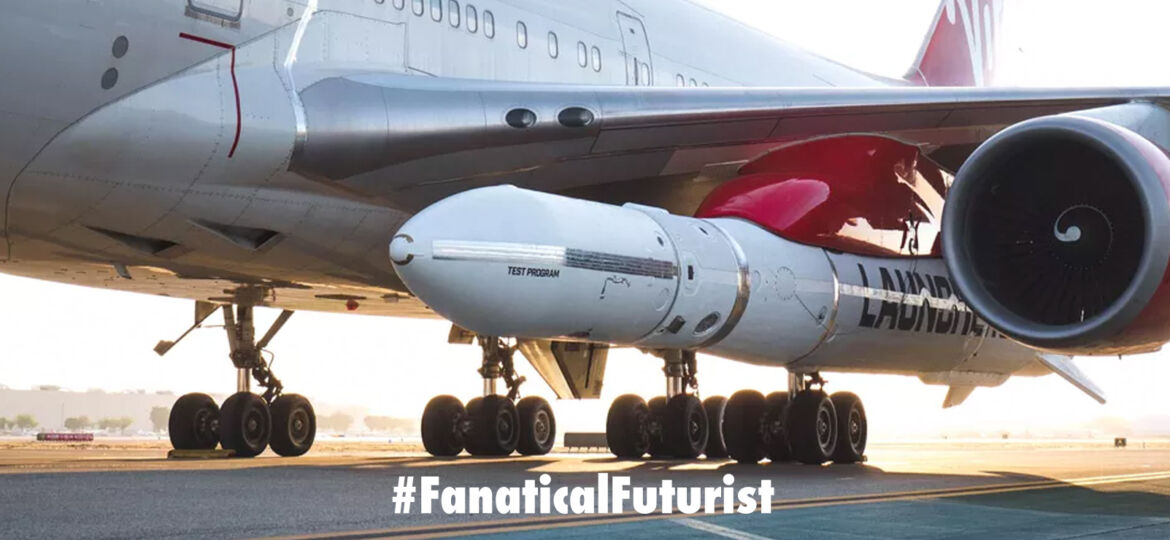
WHY THIS MATTERS IN BRIEF
Many companies are trying to lower the cost of launching goods and people into space, and this is one of the craziest yet, but it’s likely going to work.
A number of companies are exploring ways to launch a rocket not from a launchpad, but from a plane while it’s in flight. And now Sir Richard Branson, who I had the pleasure of interviewing a few months ago, wants to do it, too. Virgin Orbit, part of Branson’s aerospace business, this week announced that it’s successfully attached a rocket to a 747 jet. The first ever 747 converted to carry rockets is called Cosmic Girl, and the rocket’s called LauncherOne.
By carrying the rocket to 35,000 feet before launching it Cosmic Girl can release LauncherOne to deploy small scale satellites into low earth orbit without having to depend on, or use, expensive traditional rocket based launch systems like the ones from SpaceX, even though their re-usable rocket tech over the years has helped to reduce the cost of rocket launches by at least ten fold, or the United Launch Alliance (ULA) which has been a long term favourite of the US government.
Virgin Orbit highlight reel 2018
“Air launch frees missions from traffic jams at the existing launch sites; eliminates the need for costly, fixed ground infrastructure; and makes the system more resilient to unfavorable weather conditions,” said Virgin Orbit in a press release.
Virgin isn’t charting new territory here though. Orbital ATK, which was purchased in June by aerospace and defense juggernaut Northrop Grumman, first launched its Pegasus rocket from a converted aircraft called Stargazer in 1990 and successfully sent 44 payloads into space before Pegasus’s last launch in 2016. But perhaps the best known current project in this space is Stratolaunch Systems, the aerospace company founded by the late Microsoft cofounder Paul Allen that is known for its hulking six-engined plane.
“At 70 feet, it is twice the length of a London bus and will travel at more than 20 times the speed of sound. The rocket weighs 57,000 pounds, which is the equivalent to 25 small family cars,” said Branson.
The company plans to conduct test flights before officially embarking on launches for the US Department of Defense, the Italian satellite manufacturer Sitael, and other contractors starting in 2021.
All that said though, while launching satellites from aircraft, rather than rocket, based systems is much cheaper than today’s alternatives, recently Virgin Atlantic trialled a new biofuel in their 747’s which could reduce the cost of future aircraft based rocket launches even cheaper, and this is leading many to start talking about the upcoming “democratisation of access to space” which will be revolutionary for many people and industries around the world, from space tourism to space based manufacturing, which was again recently touted by Amazon Founder Jeff Bezos, and beyond.

















[…] to help get cargo and satellites, as well as humans, into space that include everything from using commercial aircraft and fancy centrifugal launch systems, to new “impossible” propulsion systems so we can travel […]